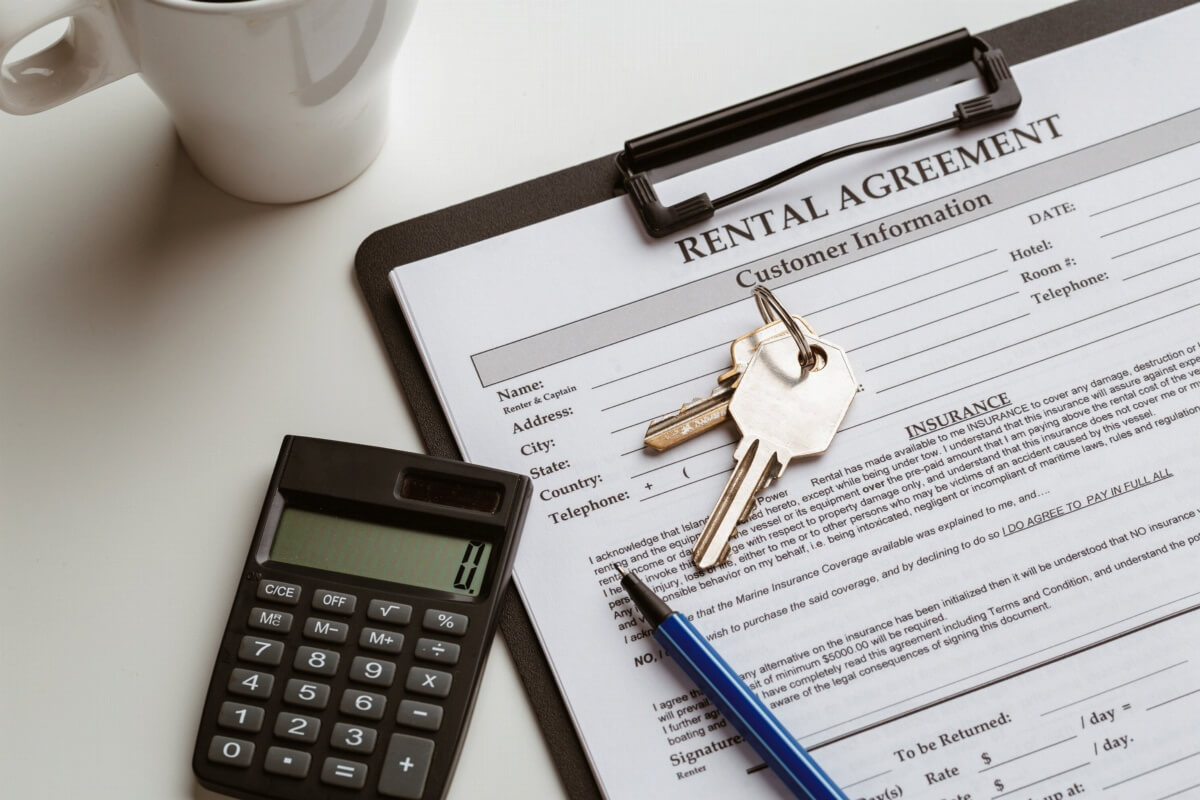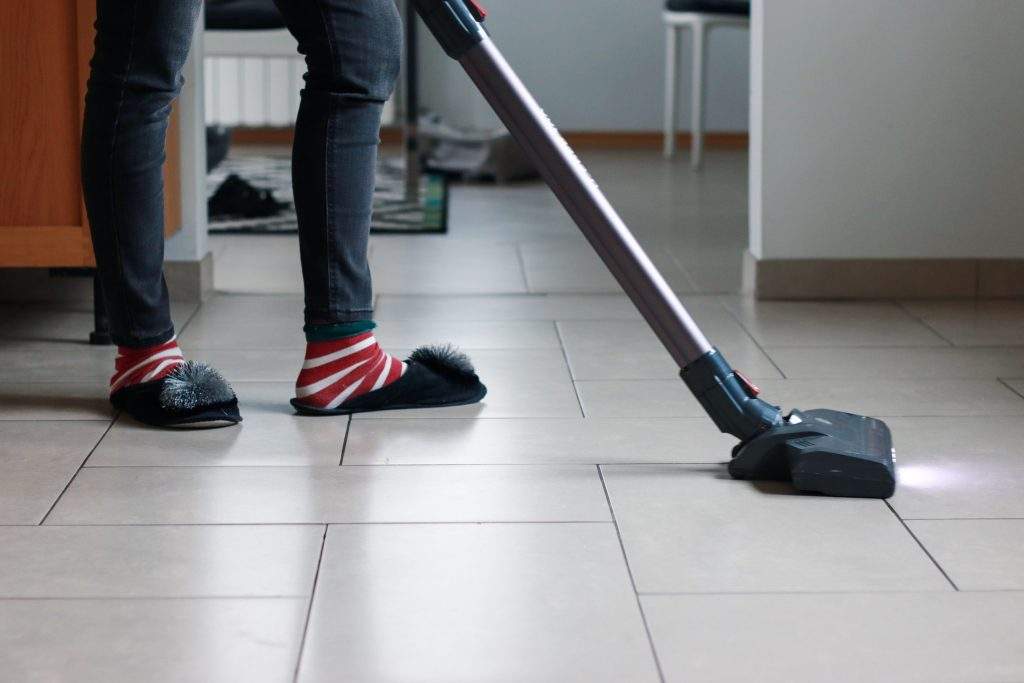Understanding Residential Leases
Leases can be complicated. There is a lot of language in a lease that, for most of the tenant world, could use some explaining. That’s where we come in. We want our tenants to be informed, educated and in the know. We don’t want you to have any unexpected surprises in your lease. To help, we’ve decided to put together this post to walk you through a residential lease.
- Section 1: Landlord’s Smoke Detector, Carbon Monoxide Detector, and Water Heater Certification
- Section 2: Residential Lease-Rental Agreement and Deposit Receipt
Section 1: Landlord’s Smoke Detector, Carbon Monoxide Detector, and Water Heater Certification
This section covers required safety devices and requirements by law.
I. Smoke Detectors
Per California Law, smoke detectors must be installed in the unit. This is to protect you, the tenant, in the event of a fire.
II: Carbon Monoxide Detectors
Another California Health & Safety Code requirement. Carbon monoxide detectors need to be installed in any property with an attached garage and/or any fossil-fuel burning devices. Gas can be deadly and these little safety devices have saved lives.
III: Water Heater
Because, yes, we have earthquakes here, the water heater must be strapped to avoid displacement due to earthquakes! This is a requirement for any home (rental or owned) in the state of California.
The above requirements will all be installed and operable before tenancy, and will meet the State Fire Marshal’s requirements as well as any local ordinances.
Section 2: Residential Lease-Rental Agreement and Deposit Receipt
This part of the lease goes over the agency relationship (relationship between landlord, tenant and listing agent), the terms of the lease, the deposit and other important legal implications to be aware of.
Agency Relationship Confirmation
An agency relationship is a fiduciary relationship where one person grants responsibilities and trust to an agent to carry out the transaction.
The listing agent is the individual or company who is listing the property on behalf of the owner. If you rent with us, Ziprent is the listing agent and in most cases, will also be the leasing agent for the tenant. Because we make tenant placement so simple and streamline, we often act as both the listing and the leasing agent.
The next part covers the deposit, when it was received and how much. Under that, there will be an itemized list of move-in costs, which could include the deposit, first month’s rent and last month’s rent. The amounts in this list will vary depending on the property, the deposit amount and whether they require last month’s rent to move in.
1.Term
The term defines the type and length of the lease and/or rental. A lease is a long-term lease with pre-defined start and end dates with a total amount in rent due over the course of the lease. A rental is a month-to-month, short-term scenario where the agreement can be terminated by giving the appropriate written notice.
Most tenants feel more comfortable singing a lease than a rental if they are planning on staying for an extended period of time. A lease protects you throughout the entire term, so you won’t have to worry about any termination before the end date.
2. Rent
This is a very important part of the lease. It states how much you owe each month, when it’s due, and any late fees/charges.
Not paying rent on time can result in some expensive consequences, so always make sure you know exactly how to pay rent and when it’s due. Our best practice? Pay rent early. This ensures the rent check is always there when it needs to be, thus avoiding any unnecessary problems.
If you are a tenant of a Ziprent property, we have an Autopay service within our platform. Just link your bank account and your rent will get deducted on time, everytime.
3. Multiple Occupancy
This article simply states that the people who sign the agreement, agree to it’s terms and their respective responsibilities.
4. Utilities
It’s important to understand what utilities you as the tenant are responsible for. Are you paying for energy, water, sewer and trash or are you just responsible for energy and your Internet? Remember to switch any utilities you are paying for into your name prior to move in!
5. Use
This article defines how many people are allowed to live at the house and covers some basic rules about guests, parking spots and additional vehicles. Remember, if the tenant do not abide by these rules, you could forfeit your deposit or risk greater consequences!
6. Animals
Basically, only bring approved animals on premises. If it is a dog-friendly lease, there will be a section stating what animal is allowed to live on the property. If not, do not try and sneak an animal into the home. Again, you might risk forfeiting your deposit.
7. Rules and Regulations
This article is specifically for multi-tenant properties such as condominiums communities. You must agree to the rules of the community NOT just the rules of this lease. If you are moving in to a common-interest community, make sure you read their rules as well to make sure you can abide by them throughout the terms of your lease.
8. Ordinances and Statutes
Simply put, you need to follow the rules and respect the law.
9. Assignment and Subletting
You are not allowed to rent the property to anyone else without the go ahead from the owner.
10. Maintenance, Repairs, or Alterations
Basically, the landlord states that everything in the unit is in properly maintained and working order. The tenant is responsible to inform the landlord of any damage or any necessary maintenance and/or repairs and must return the property in the condition it was received. It also states that the tenant cannot make any changes to the property without consent from the landlord.
11. Inventory
An itemized list of all personal property will be given to the tenant and it’s the tenant’s responsibility to keep that personal property in the condition it was received (with normal wear and tear, of course.)
12. Damages to the Premises
If the property is damaged and uninhabitable, both parties (landlord and tenant) can terminate the agreement via written notice within 15 days of the damage. IF the property is damaged due to the tenant’s negligence, then the owner has the right to terminate. Rent will be prorated for the month (from the time the damage occurred). If the agreement is not terminated and the owner can repair the property, rent will also be prorated until the property is fixed and in a liveable condition once again. Please note, if the damage is due to the tenant’s negligence, the security deposit could be forfeited.
13. Entry and Inspection
The owner/landlord has the right to enter the premises in the case of an emergency and/or to make necessary repairs. The landlord does have to give 24 hour notice and the visits must be during business hours.
14. Indemnification
This is an important article. The owner is not responsible for injury or damage to the tenant, their friends/guests or to any property during the term of the lease UNLESS it is due to the owner’s negligence. Basically, you can’t blame the owner if you hurt yourself while renting the place.
15. Physical Possession
IF the owner can’t give you the keys and let you move in on the date originally discussed, the agreement is not terminated. The tenant just doesn’t have to pay rent until the home is ready to be lived in.
16. Default
If you default on the agreement, for example failing to pay rent, the owner must provide written notice and in no less than three days after providing such notice, can terminate the agreement. The owner has the right to carry out the lease and expect all rent from you and can take legal action to do so, or choose to find a new renter. Best practice? Don’t default. It could cost you A LOT.
17. Security
After you have vacated the premises, you will receive the balance of your security deposit back within 21 days. A lot of times, the tenant receives a large portion of the deposit back, however, if there are unpaid rents or tenant damages, the security deposit will be used accordingly and you will just get back the balance after the repairs and/or unpaid rent.
18. Waiver
Basically, this agreement must be followed.
19. Notices
Any notice must be in writing and either delivered personally or mailed. As a general rule of thumb, we recommend always have any conversations in writing as this holds up more effectively than any oral notice or conversation.
20. Holding Over
This article discusses what happens at the end of the lease term. Typically, after the year, the tenancy becomes month-to-month, but the terms of the agreement still stand.
21. Time
Time is of the essence means that either party must comply with the terms of the agreement within the dates on the contract.
22. Attorney’s Fees
If you have to hire an attorney for any reason or dispute between you and the landlord, the prevailing (winning party) will be responsible for ‘reasonable’ attorney fees.
23. Subrogation
Basically, you and the owner/landlord waive the right to pay each other insurance moneys unless otherwise stated.
24. Fair Housing
By law, there can be zero discrimination when it comes to renting a property.
25. Smoking Restrictions
This article determines if you can smoke in and/or around the property.
26. Additional Terms and Conditions
This is where the owner can fill in any additional terms of the agreement.
27. Rent Control
If this box is checked, the property is subject to rent control.
28. Entire Agreement
This article states that this is an agreement between the two parties and that any modifications must be made in writing and signed by both. It also notes any additional documents that are part of this agreement and must be signed before the execution of said agreement.
No matter the situation, it’s always important to understand the lease agreement and it’s terms. In the case that issues arise, the agreement acts as the basis for all resolutions.
We hope that this guide helps you in better understanding the lease agreement and what it means for you as you move into your new home!
If you have any questions, please feel free to contact us! We are happy to walk through any part of the agreement to make sure all parties are comfortable!












